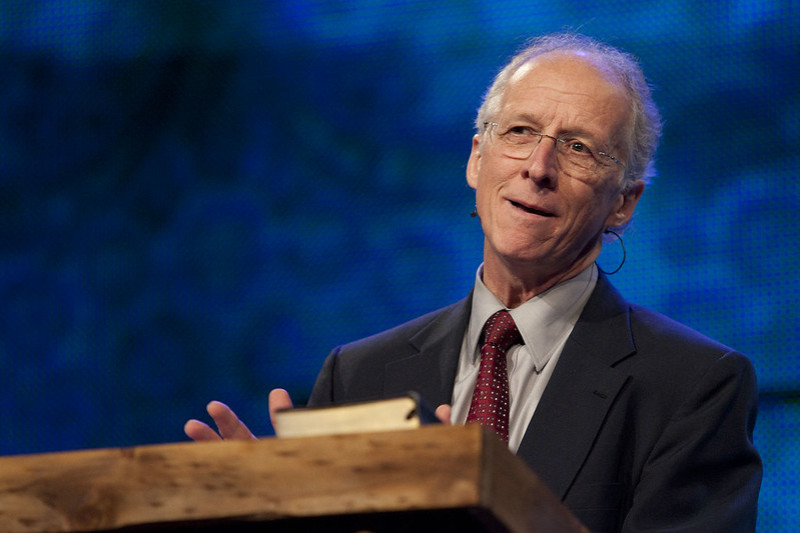
During a podcast led by the team at Desiring God, a woman from Sweden, who described herself as a "relatively new Christian" asked Pastor John Piper about her church that does not preach against sins.
One argument John Piper stated is, "I think the church is profoundly defective. It is unfaithful to the Word of God... Why would pastors presume to be wiser than the Scriptures in the way they speak to God's people?"
Many church leaders believe they know more than what the Scripture says. Piper continued the podcast by giving four reasons from the Bible that it is unfaithful to not denounce and call for repentance from sins that are in the world and in the church.
Piper's first reason was regarding the prophets, apostles, and Jesus. God's spokesmen wrote not only the good news of the forgiveness of sins, but the condemnation of sinning. They also include a call for repentance and obedience before the Lord, for God's grace covers one's sins.
Piper gave scripture based examples, Malachi 3:5, Matthew 5:29, Luke 6:24, Matthew 23:29, 1 Corinthians 6:9-10, 18. The prophets, apostles, and Jesus named the sins and that was their method of preaching. They did not only name the sins, but they called for repentance and shared the good news of forgiveness.
Piper concluded his first reasoning with, "So if a pastor wants to find an authority for preaching that does not name and denounce and call for repentance from sins, he's not going to find it in the Bible."
"The pattern of sanctification comes about by a combination of God's conquering sin by divine action, together with God's command to kill sin in reliance on that divine action. It's unbiblical to separate God's conquering of sin and his command for us to kill it."
Piper added, "The problem with pastors who do not preach against specific sins is their own problem, they do not understand how God works. These pastors do not submit to the patterns of sanctification, but they create things up."
Piper gave three illustrations to clearly explain the pattern of sanctification.
First, the commands from the cross. Jesus Christ died on the cross to forgive sin, also so that sin might die in people's lives.
1 Peter 2:24 says, "He himself bore our sins in his body on the cross, so that we might die to sins and live for righteousness." Christ defeated vengeance on the cross for his people and commanded not to return evil for evil. The victory and conquering of Christ and the order to kill sin is the pattern of sanctification.
"That's how we are made new: the divine sin-destroying work of Christ and the divine sin-naming, sin-denouncing word of Christ," described by Piper.
He gave another illustration, but about the new birth of Christians. The work of the new birth is that Christians become people who hate sin and love righteousness. God designed sanctification to work by: "Christ conquers sins by the new birth, and then he commands us to kill what he has conquered."
The last illustration Piper talked about was about the Fruit of the Spirit. In Galatians 5:22-23 Paul says, "But the fruit of the Spirit is love, joy, peace, patience, kindness, goodness, faithfulness, gentleness, self-control; against such things there is no law."
The Spirit is alive and bears fruit in one's life. Piper mentioned that people can be unbiblical if they want and make things up along with pulling inferences that the Scripture does not mention. That is not a good way of preaching or ministering.
Piper delivered, "Don't try to be smarter than God. God conquers our sins by the Spirit and commands that we kill those sins by means of the Spirit. That's the biblical pattern."
Pastors who do not name sins is a way of putting human wisdom above the divine wisdom. They are ignoring the way Jesus, the prophets, and the apostles preached and not fully understanding how sanctification really works in the Bible.
Piper concluded with this, "The cross, the new birth, the fruit of the Holy Spirit actually conquer sin through God's command for us to kill it."


















